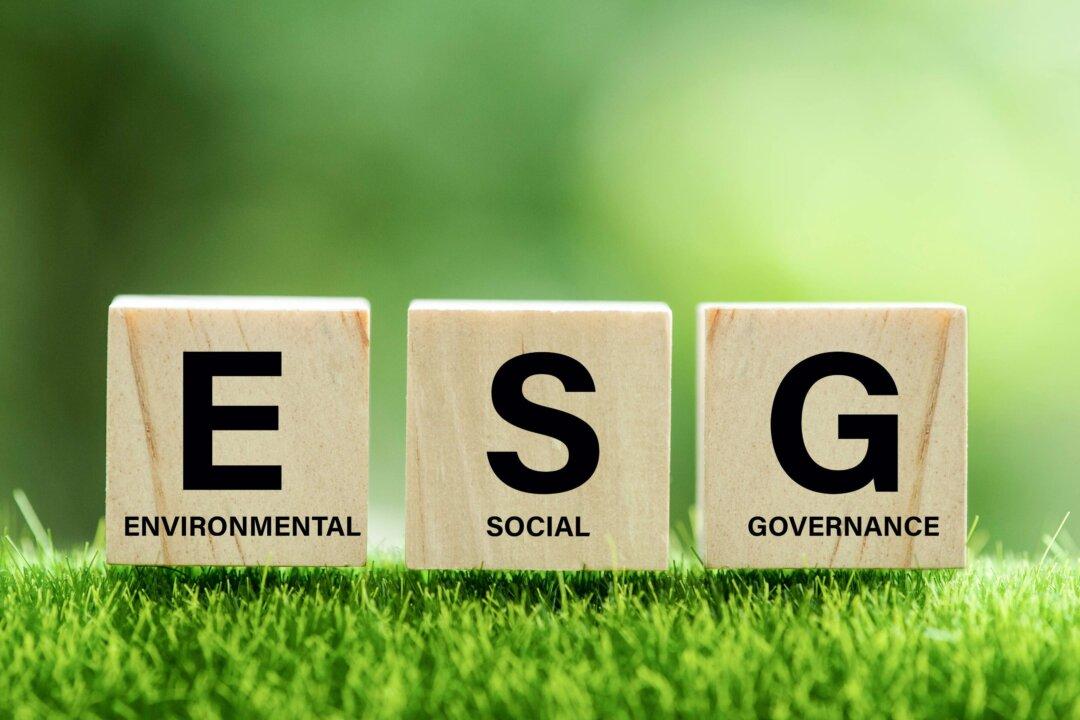News Analysis
In 2022, in the midst of a recession, record inflation, and a tumbling stock market, a corporate ideology known by the acronym ESG emerged from obscurity to become a headline topic. It has been called everything from a risk-management tool and a movement for a cleaner, more just world, to a “con,” a “fraud,” and even—in an Elon Musk tweet—“the devil incarnate.”





